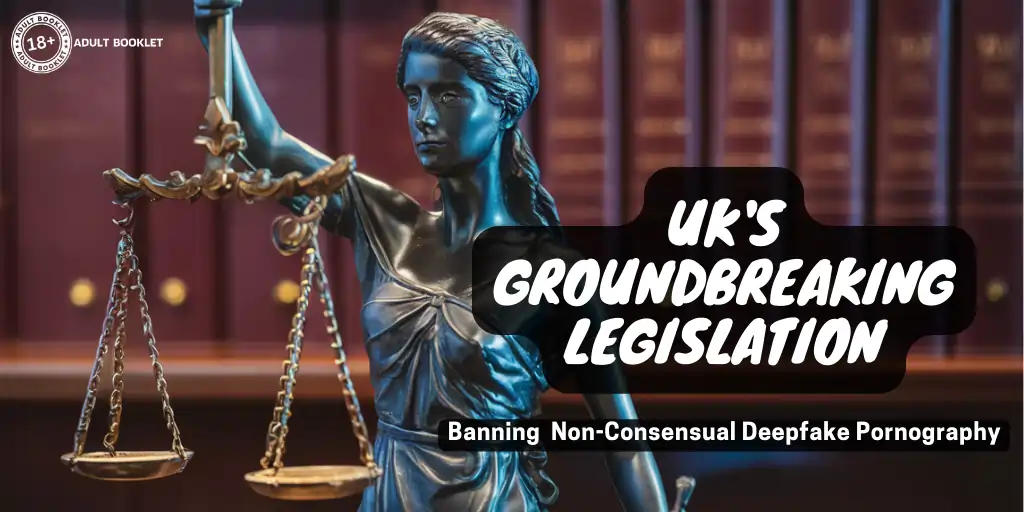
Landmark legislation aims to crack down on disturbing trend of non-consensual fake explicit images
In a major victory for digital privacy rights, the UK government is set to make it illegal to create deepfake pornographic images or videos depicting someone without their consent. The groundbreaking new law would impose harsh penalties, including potential jail time, on those who maliciously use advanced AI and digital editing tools to fabricate explicit content of others.
The amendment to England and Wales' criminal justice bill was spearheaded by Laura Farris, the UK Minister for Victims and Safeguarding. “Creating deepfake porn without consent is unacceptable irrespective of whether the image is shared,” Farris stated. “It is another example of ways in which certain people seek to degrade and dehumanize others – especially women. And it has the capacity to cause catastrophic consequences if the material is shared more widely. This government will not tolerate it.”
The move follows the passage of the Online Safety Act in October 2023, which made it illegal to share any deepfake porn without the consent of those depicted. But that law didn't go far enough, as the mere creation of such fake explicit images can be immensely traumatizing and a violation of privacy, even if not publicly distributed.
The Disturbing Rise of Deepfake Porn
The need to crack down on non-consensual deepfake porn has become increasingly urgent in recent years as the technology has advanced rapidly. Deepfakes utilize cutting-edge machine learning techniques to seamlessly swap faces and map them onto existing video footage with remarkable realism.
While deepfakes can be used for fun and harmless purposes, like having Nicolas Cage star in every movie, the technology has also enabled a dark corner of the internet to create explicit fake videos violating the privacy and dignity of unsuspecting victims.

A 2022 study found over 100,000 deepfake porn videos circulating online, with 94% of them depicting women without their consent. Many target female celebrities, but a growing number are being weaponized for revenge porn against ex-partners or acquaintances.
“The creation of deepfake porn causes serious psychological harm and is a violation of human dignity,” said Dr. Sam Gregory, a technology researcher at WITNESS, a nonprofit focused on digital privacy rights. “Even if not shared publicly, just the knowledge that an explicit image of you was fabricated without consent can be traumatizing.”
Closing Loopholes and Ensuring Enforcement
While the new UK law represents a positive step, some digital rights advocates warn that it may not go far enough in its current proposed form. As written, the amendment would only allow prosecution if there is proven “malicious intent” behind the creation of the deepfake porn.
“There are still some gray areas that need to be addressed,” said Yvette Cooper, Labour's shadow home secretary. “It's essential that the police and prosecutors are equipped with the training and tools required to rigorously enforce these laws in order to stop perpetrators from acting with impunity.”
Cooper and others argue that any non-consensual creation of explicit deepfakes should be illegal, regardless of the creator's stated intent, given the potential for immense psychological harm.
There are also concerns about how the law will keep pace with rapidly evolving AI capabilities that could make deepfake creation ubiquitous and increasingly difficult to detect. Some experts have called for tech companies to implement upload filters and other safeguards to prevent deepfake porn from spreading in the first place.
“Laws regulating deepfake porn are critical, but they're not a panacea,” said Danielle Citron, a legal scholar at the University of Virginia focused on sexual privacy. “We need a multi-stakeholder approach involving tech companies, lawmakers, and civil society to get ahead of this insidious, ever-morphing threat.”
A Watershed Moment
Despite the remaining challenges, the UK's move to criminalize deepfake porn creation is being hailed as a vital first step that could set a model for other countries grappling with how to legislate emerging AI capabilities.
“Deepfake porn is a pernicious form of image-based sexual abuse that has been allowed to proliferate online with few legal guardrails,” said Mary Anne Franks, president of the Cyber Civil Rights Initiative and a law professor. “This legislation represents a watershed moment and an acknowledgment that an image can cause serious harm regardless of whether it was shared.”
As AI tools become increasingly powerful and democratized, experts warn that failing to regulate their malicious use could enable an erosion of digital privacy, consent, and safety on an unprecedented scale.
“AI is a dual-use technology – it can be used to create amazing art and tools that better humanity, or it can be weaponized to cause serious harm,” said Hao Li, associate professor of computer science at USC. “Proactive governance that protects human rights while still allowing beneficial AI development is critical as we enter this new technological era.”
With the UK now taking the lead, the pressure is on other nations to follow suit and enshrine robust legal protections before the ability to digitally violate someone's consent spirals out of control. The deepfake porn law could be a catalyst for wider AI governance frameworks aimed at mitigating the immense societal risks posed by these rapidly progressing technologies.




